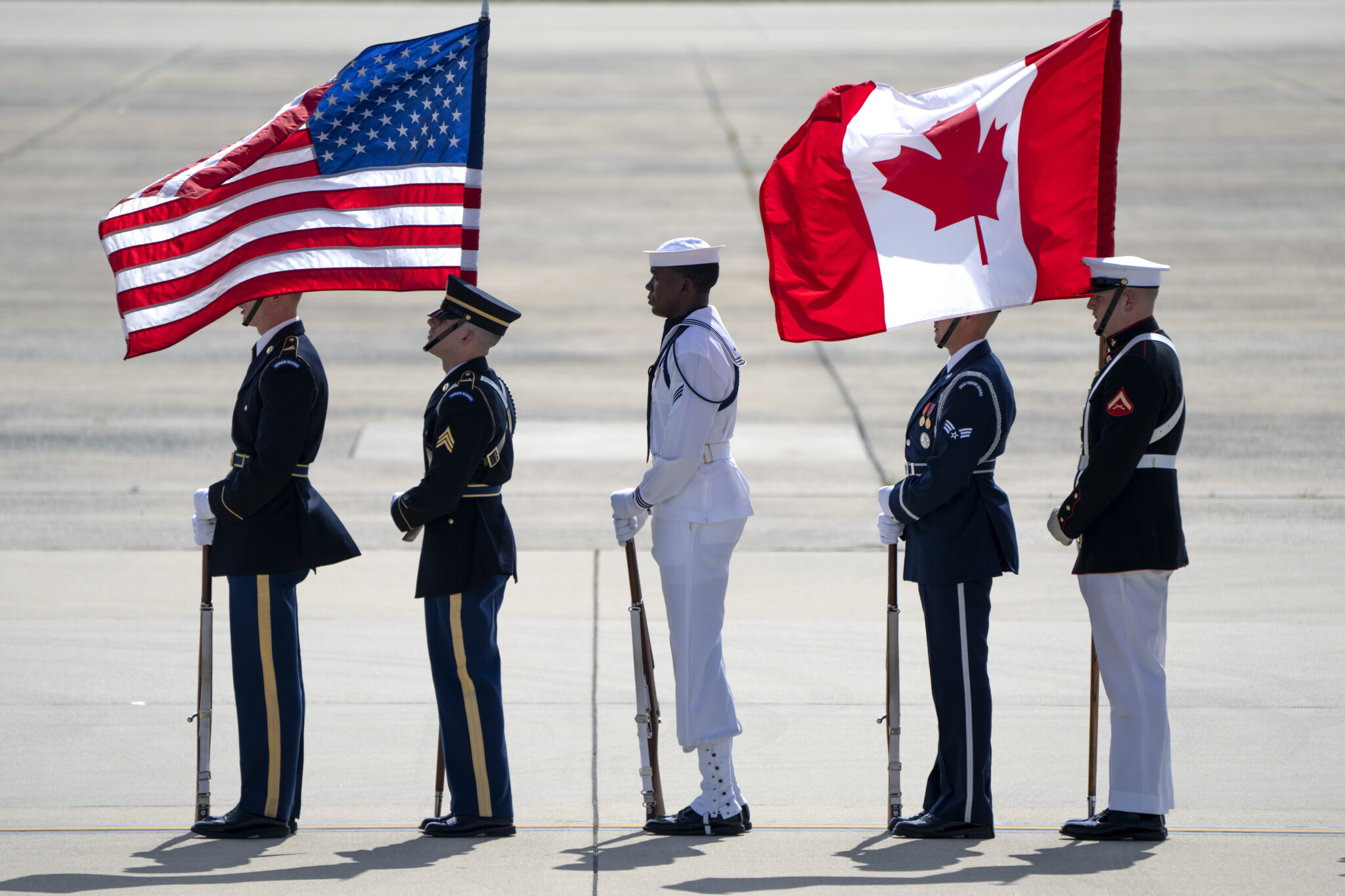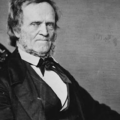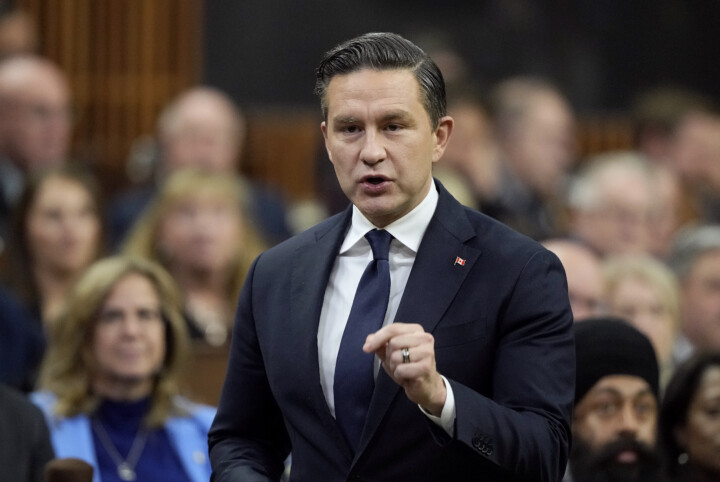
This year marks the 60th anniversary of Canadian philosopher George Grant’s Lament for a Nation: The Defeat of Canadian Nationalism, a seminal work that reshaped Canadian political discourse. Published in 1965, Grant’s critique of American cultural dominance and technological modernity challenged Canadians to reconsider their national sovereignty and identity. To mark the occasion, this summer, The Hub will feature a series of essays from big thinkers exploring the book’s enduring legacy and how its insights remain vital to understanding Canada and its relationship with the United States today.
A recent episode of Hub Dialogues featured host Harrison Lowman speaking to Globe and Mail columnist Andrew Coyne, who offered his reflections on the 60th anniversary of Lament for a Nation, and whether George Grant’s arguments have meaning in current-day Canada. See the transcript below for Coyne’s remarks.
HARRISON LOWMAN: This year is the 60th anniversary of renowned Canadian philosopher George Grant’s seminal work, Lament for a Nation. It is an emotional critique of American dominance in this country. It touches on a fear that we’ve had since the 1800s, this fear of being swallowed up by the Americans, as it relates to business, as it relates to culture, etc, and whether maybe we’ve already been swallowed and are being digested currently. How do you look back on 60 years since this book was written, and that relationship between us and our neighbours to the south?
ANDREW COYNE: Well, it’s been a long time since I read it, but my recollection of his was that it wasn’t just a critique of America or America’s relationship with Canada. It was a critique of the modern world. His ideal was a pre-industrial society, and the lament part of the pessimism of the book was his acknowledgement that there wasn’t any real solution to that, that we were, we were perforce part of modernity, and therefore part of the American empire as being the sort of leading country of modernity.
I don’t want to retreat into a pre-industrial society. I think modernity has many virtues. So his critique to me, you said, was emotional, and I would say, not really rooted in anything pragmatic or achievable. I mean, one of the measures was that his hero was Diefenbaker? It takes a lot of work, it seems to me, to erect John Diefenbaker as some kind of tribune of, of any kind of serious Canadian nationalism or of a critique of modernity. He was a kook, is what he was.
So I find it hard to take the book seriously. In that light, it became the Bible for a lot of Left-wing Canadian nationalists from the 60s on, and sort of Red Tories, which, to me, just shows how often socialism can actually be quite conservative. A lot of socialism is rooted in a hungering for a simpler society that didn’t have the kind of impersonal relationships that market economies make possible. You can hear this kind of echo of, “Wouldn’t it be better if we still lived in villages and didn’t have these complexities?”
HARRISON LOWMAN: So, for you, what are the outlines that make a Canadian conservative in modern-day times that maybe distinguish them from an American one?
ANDREW COYNE: A Canadian conservative, let me pause, and I’ll come back to that, but I think [of myself as] a Canadian nationalist. But I’m a nationalist of a certain kind. I’m a nationalist who says it’s better that we remain a large country rather than several small countries. It’s better that we should be finding force in numbers and doing greater things and achieving greater things, and aspiring to greater things, rather than hiving off and being ourselves alone.
Mine is a nationalism that says it’s not about being different from other countries. It’s about being the best country that we can be. We’re very similar to the Americas because we’re next door to them, because we’re part of North America, because we’re a modern mortgage-holding bourgeois society, and we’re going to inevitably be very similar to them. And we shouldn’t worry about that. We shouldn’t worry at all. I see no reason at all to make a difference an objective in its own right.
What I would say we should want to be is, we’re a liberal democratic country. Let’s be the best example of a liberal democratic country we can be. Let’s be more fair, more just, more democratic, more competitive–all these things that most countries around the world, most democratic countries, aspire to be.
HARRISON LOWMAN: You should try to beat them, as opposed to differentiating.
ANDREW COYNE: That’s right. Anytime you get into the difference game, it’s a dead end. It leads you astray from what ought to be your objective, which is being the best society you can be. It leads to fetishizing difference. Therefore, it means you’ve got to create and enlarge upon differences that may or may not exist. So instead, you create these stereotypes of America and stereotypes of Canada, to emphasize how different they are, which means, of course, you wind up overlooking differences within each society.
The differences between the Deep South and the Northwest are as large as any difference between Canada and America. The differences between Quebec and Western Canada are as large as anything between Canada and the United States.
So it winds up homogenizing differences within each country and exaggerating the differences between the countries. And therefore, of course, leaves you vulnerable. Suppose you’ve hoisted your flag on the idea that differentness is the only thing that matters. What do you say when Quebec comes along and says, “Well, wait a minute, we’re different from you, or more different?” Let’s get serious about it, right? It’s a little late at that point to turn around and say, “Oh, come on, there’s more to life than being different.”
So let’s have a nationalism that’s rooted in what draws us together rather than what drives us apart. What can we achieve together? What can be our purpose as a country? That’s going to be a short list, because people are going to have all kinds of individual things, but that’s one. The irony in what I’m saying is the Americans got a lot of this right up until recently/ They’re going through some real problems now, rooted in Donald Trump and what he represents. But the ordinary idea, the historic idea of America, was that it was all about the Constitution–that anybody could be an American as long as they basically subscribed to this short list of principles. That’s a very powerful idea. It’s what’s called civic nationalism, and that was very much a part of the idea of the Charter of Rights– to give every Canadian a common set of rights.
HARRISON LOWMAN: Some could say we might have copied them.
ANDREW COYNE: That’s right, and in some ways, we did things better than they did. I think I’m not a fan of the notwithstanding clause. I am a fan of the reasonable limits clause. I think the reasonable limits clause has saved us from some of the Supreme Court craziness that they’ve suffered from the United States. So yeah, we came along later and did some things better than they did. Great. That’s the way it’s supposed to work. But we didn’t do it just to be different. We did it because people said this is a better way to write your Charter rights than has previously been attempted.
This interview has been edited and condensed.








